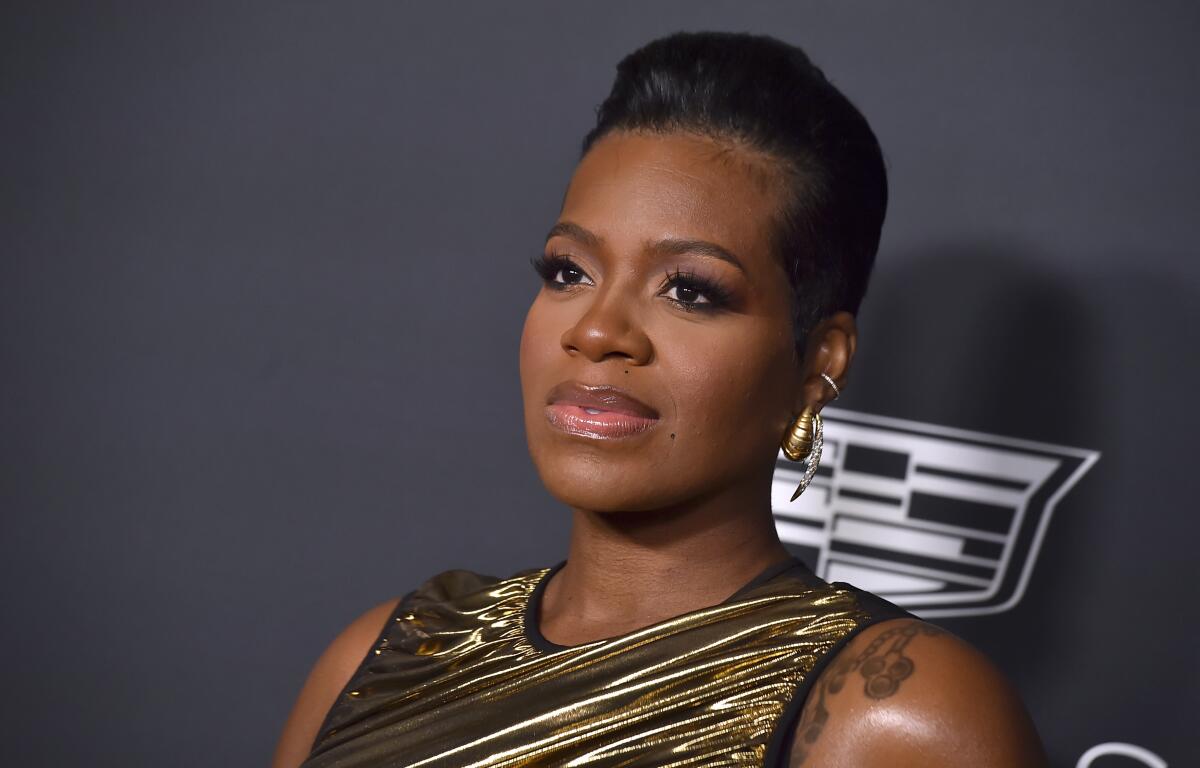Fantasia Barrino talks ‘The Color Purple,’ facing her demons and surviving a suicide attempt

Fantasia Barrino is opening up about overcoming darker times and nearly taking her own life.
Barrino, who is reprising her role as Celie in the Oprah Winfrey-produced big-screen musical adaptation of Alice Walker’s novel “The Color Purple,” told Variety that although she never thought she would be, she is “so HAPPY — in all caps.”
After being crowned the winner of the third season of “American Idol” in 2004, Barrino told the trade outlet, she rushed to embrace her grandmother, who told her to buckle up, “because with all of this comes the storm.”
In 2008, after ending her run playing Celie in “The Color Purple” on Broadway, the singer visited a church in Los Angeles, where Bishop George Bloomer warned her that she had years of pain to come. If she held on and made it through, he told her, her ending would look better than her beginning.
Just two years later, amid a battle with depression and intense public scrutiny, Barrino tried to take her own life by swallowing sleeping pills and aspirin.
This article was originally on a blog post platform and may be missing photos, graphics or links.
“I just wanted the noise to stop,” she told Variety. At the time, she’d been supporting her family financially, was embroiled in a nasty legal battle with her father over his portrayal in her memoir, and her house was in foreclosure. In the North Carolina hospital where she awoke with tubes down her throat, a nurse held up magazines with her face on their covers and told her, “‘You see that young lady? She’s strong. She’s a blessing — don’t you come back in here no more. You fight.”
“I left that hospital and said, ‘I’ll never do that again, because I have purpose,’” the singer and actor told Variety. “I’m going to speak into every young person’s life and tell them, ‘Don’t you dare give up.’
“I don’t care if it gets ugly again,” she continued. “I don’t care if there’s storms. I realized I have the spirit of an eagle.... They fly over storms.”
In 2016, Barrino told The Times that her album cover for “The Definition Of ...” was inspired by all the abuse she had endured in her life and finally being able to confront the thing she’d always run from, herself.
Fantasia Barrino’s long and winding road
“I feel like I’m every woman. I’ve been through a little bit of everything,” she told The Times. “I’m the definition of strength.”
“It’s hard for women … [especially] in the industry. If you look at some of the greats, they either couldn’t keep a good relationship or they were in an abusive one,” she continued. “It was almost like the man was trying to tear that spark out of them. I went through a lot of that. I’ve been spit on. I’ve had a black eye. I’ve dumbed myself down to try to make a relationship work.”
When Oprah first approached Barrino to play Celie again, the “American Idol” winner turned her down. Playing Celie for eight shows a week on Broadway had been traumatic for her. Celie’s struggle with abuse, heartache and adversity had mirrored her own in ways that became increasingly burdensome. She swore that she’d never play the role again.
But director Blitz Bazawule ultimately persuaded her, explaining his spin on the story. She appreciated that an on-screen portrayal of Celie could feature the character’s inner monologue in ways a stage portrayal could not.
“You get to see how she made it through some of this stuff,” Barrino said. This time around, the Grammy winner said playing Celie was an opportunity to face her past, rather than run from it.
More to Read
The biggest entertainment stories
Get our big stories about Hollywood, film, television, music, arts, culture and more right in your inbox as soon as they publish.
You may occasionally receive promotional content from the Los Angeles Times.











